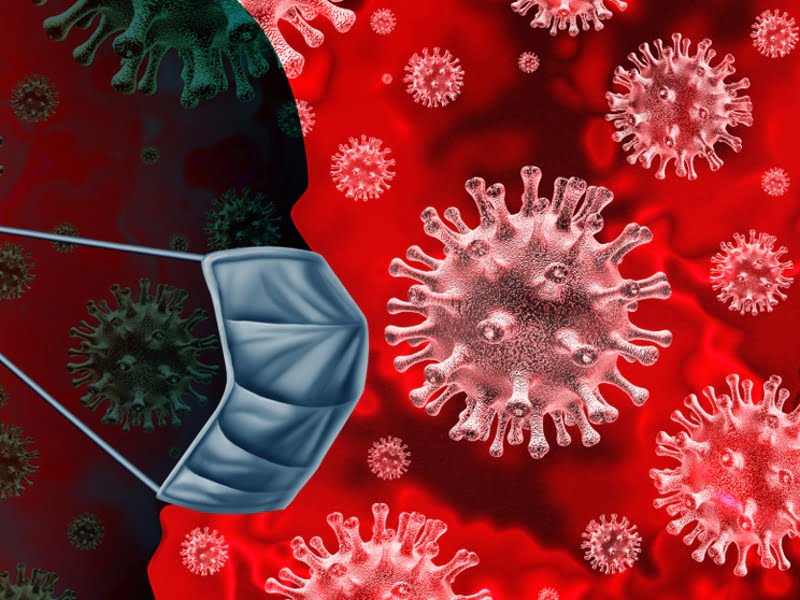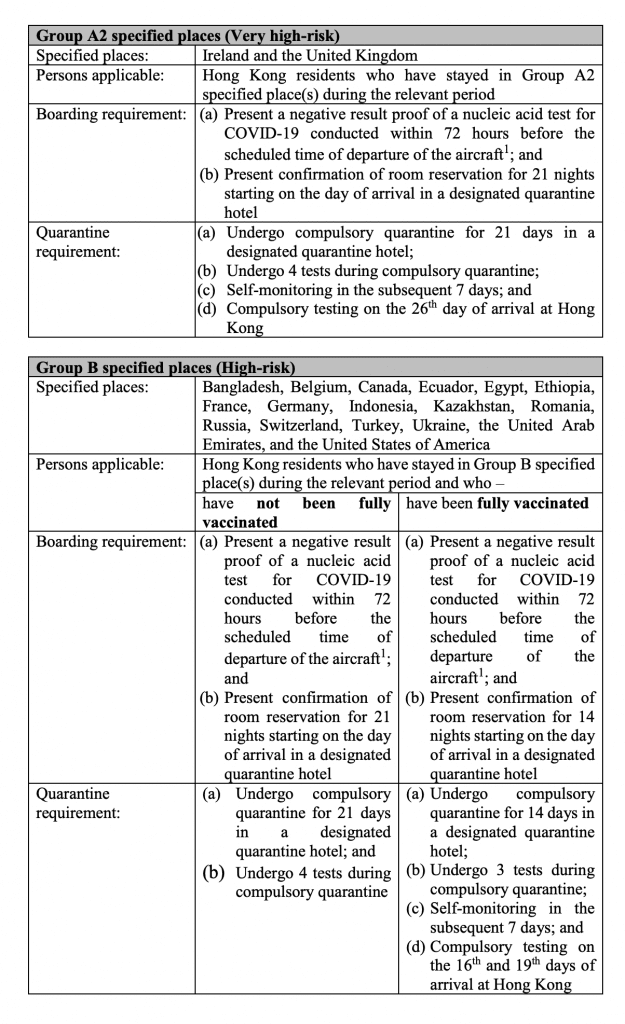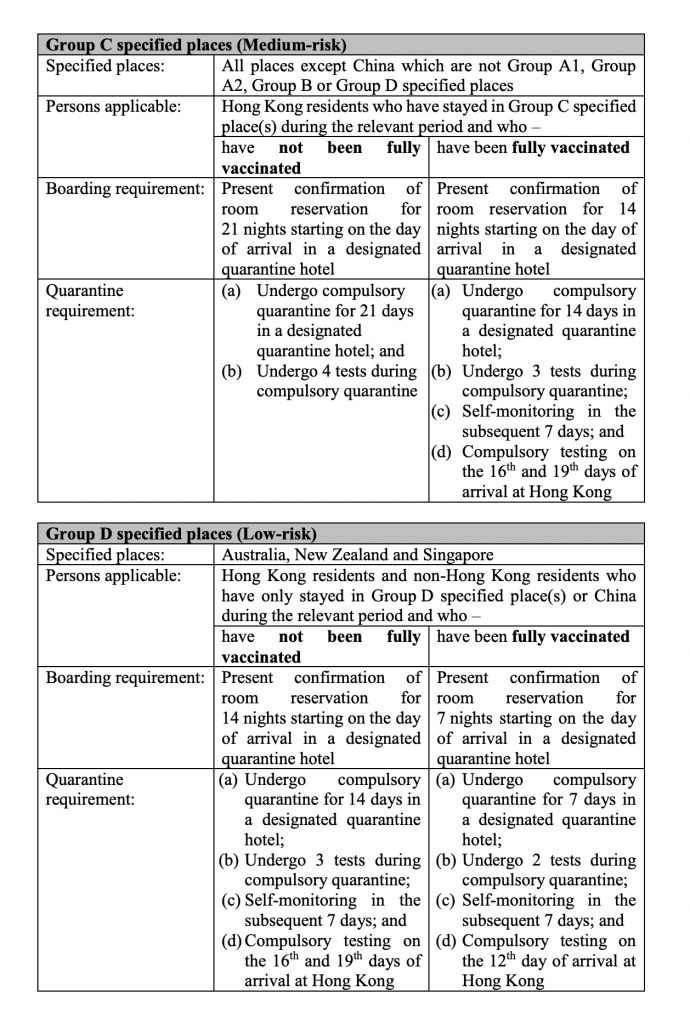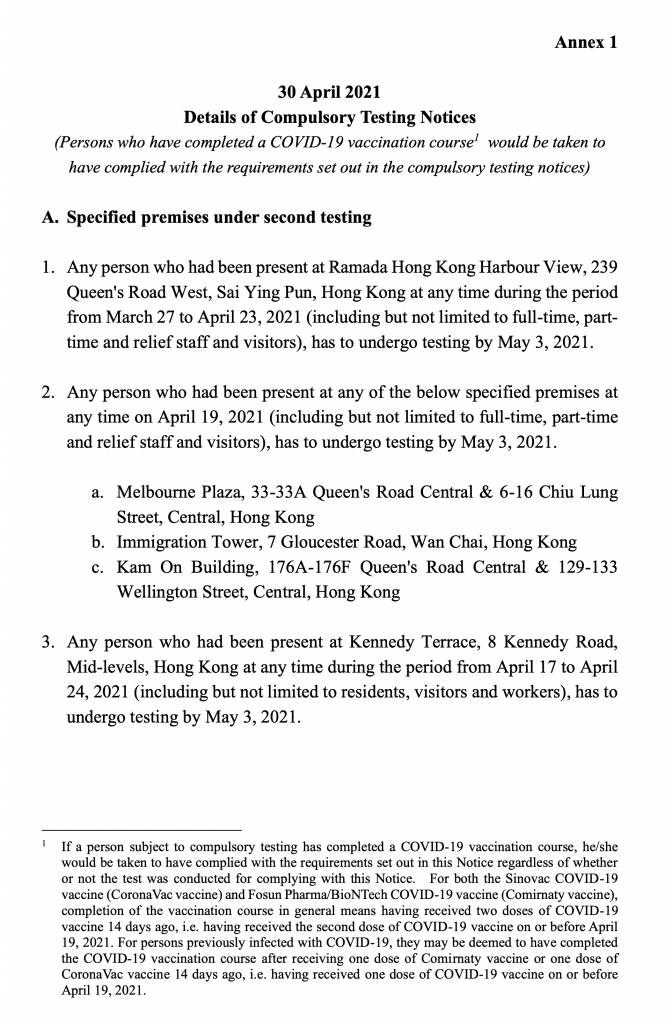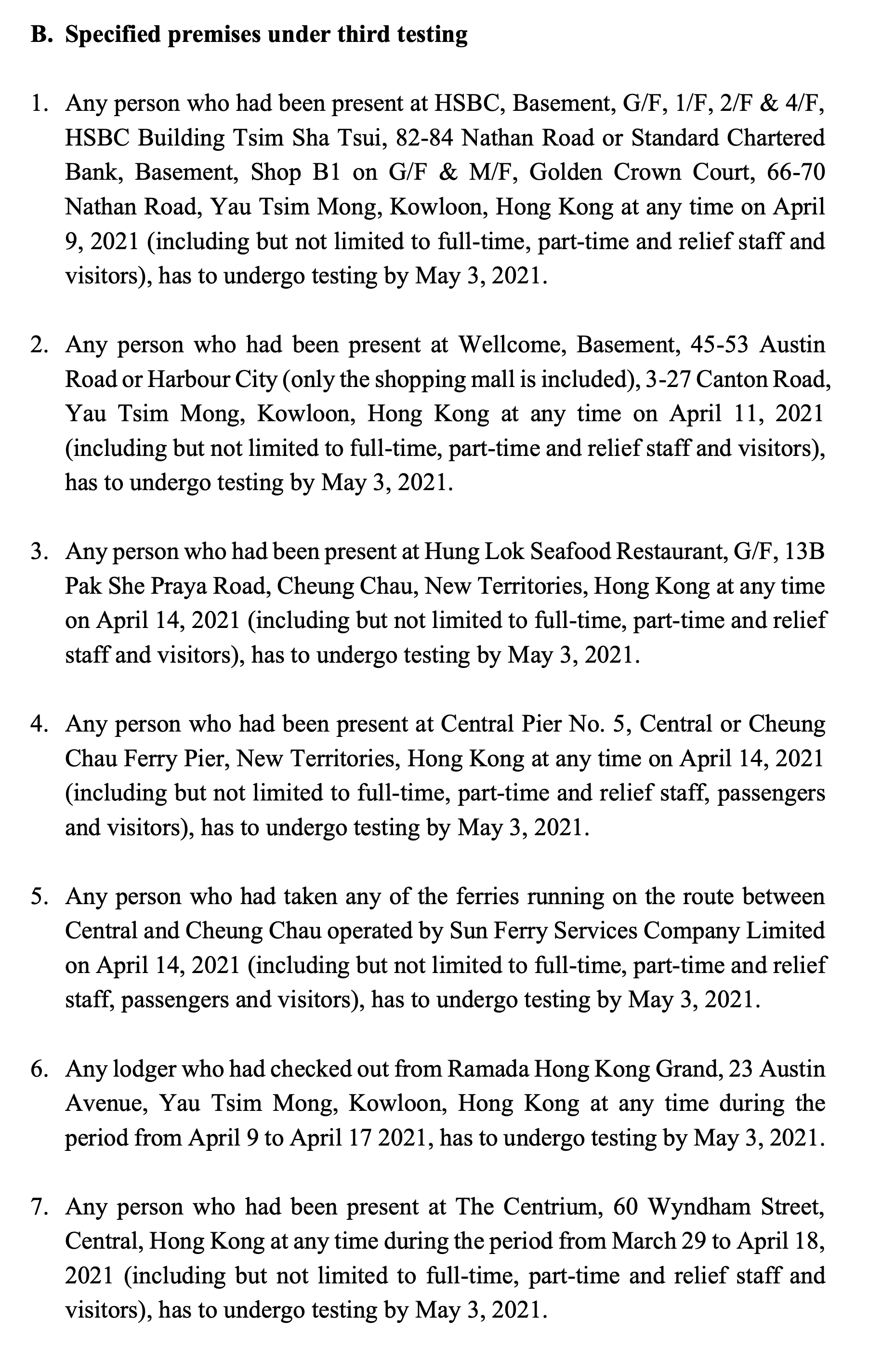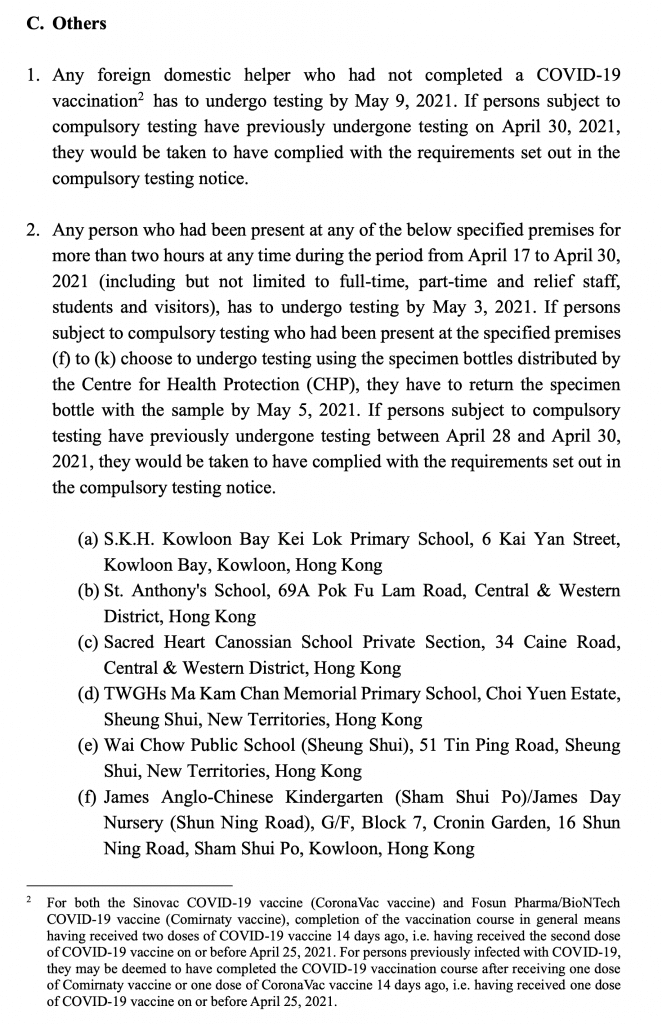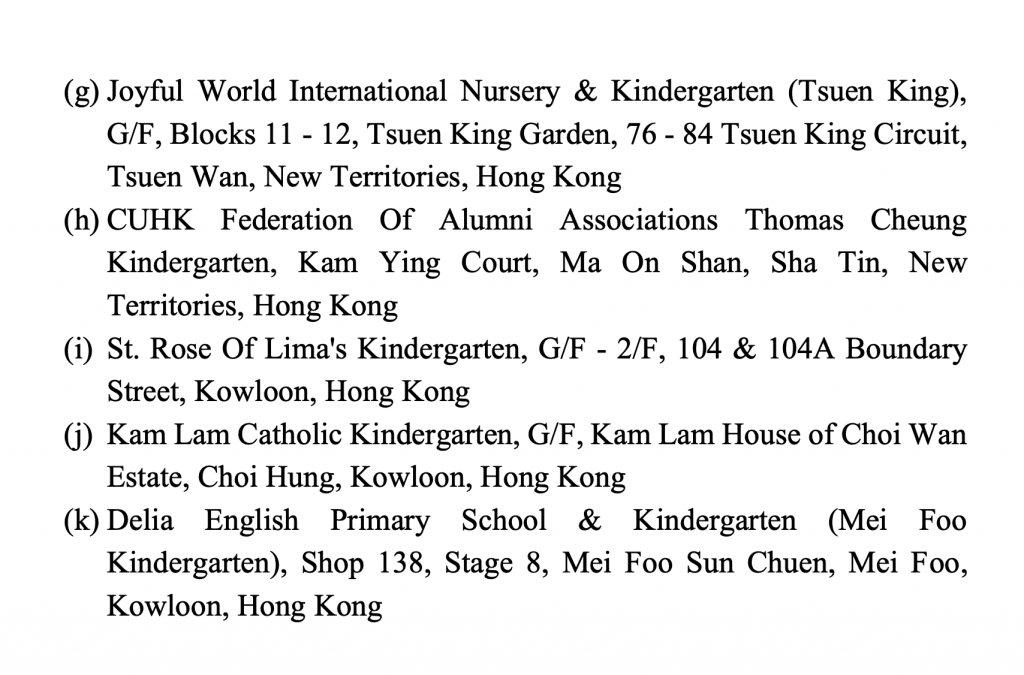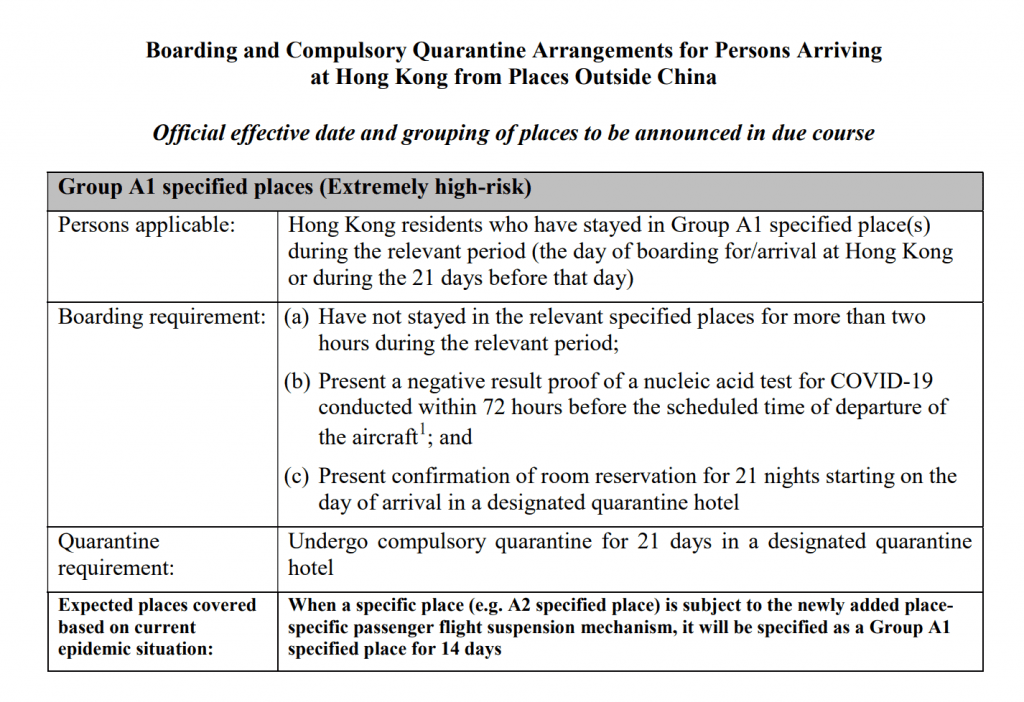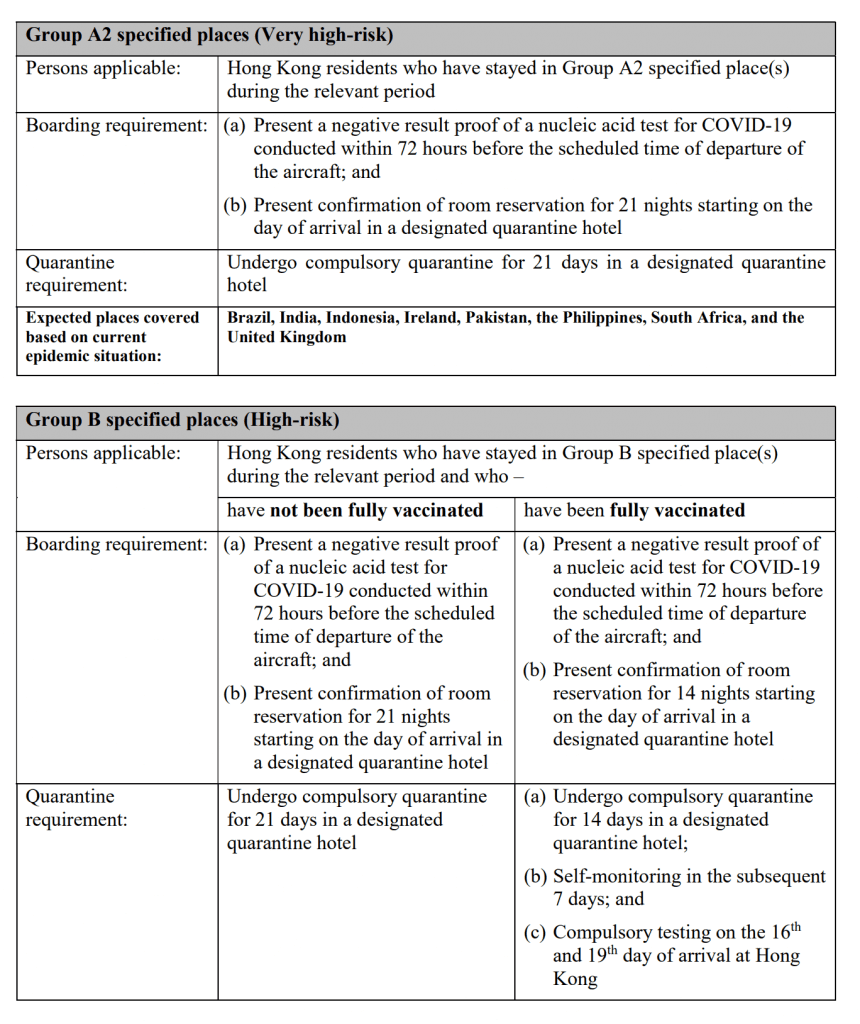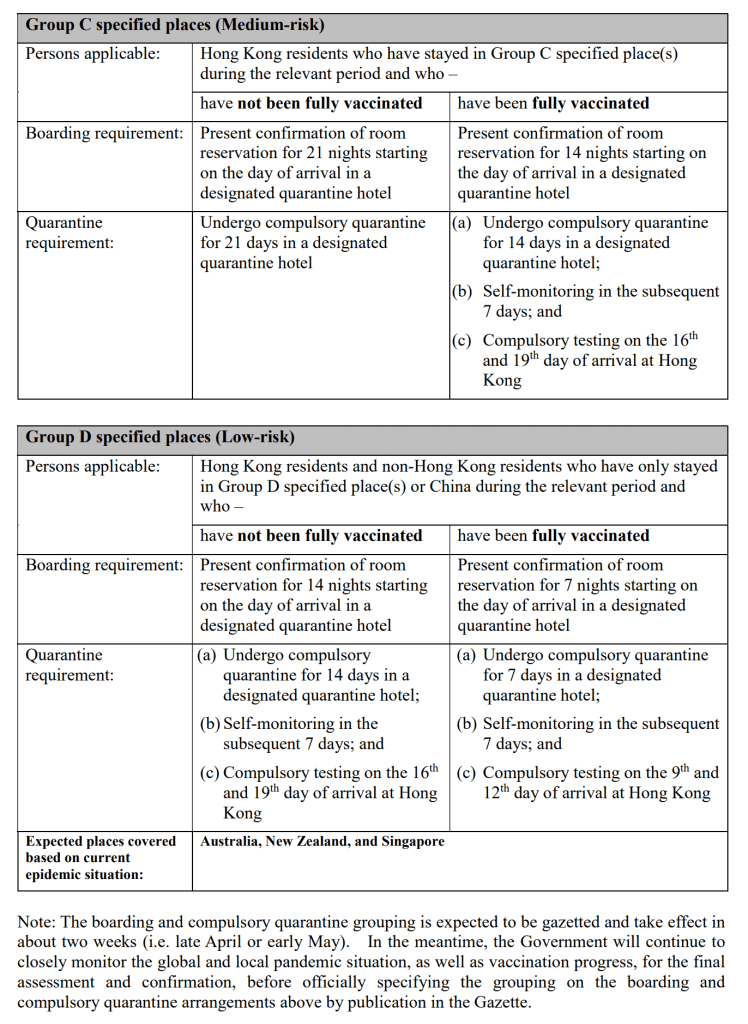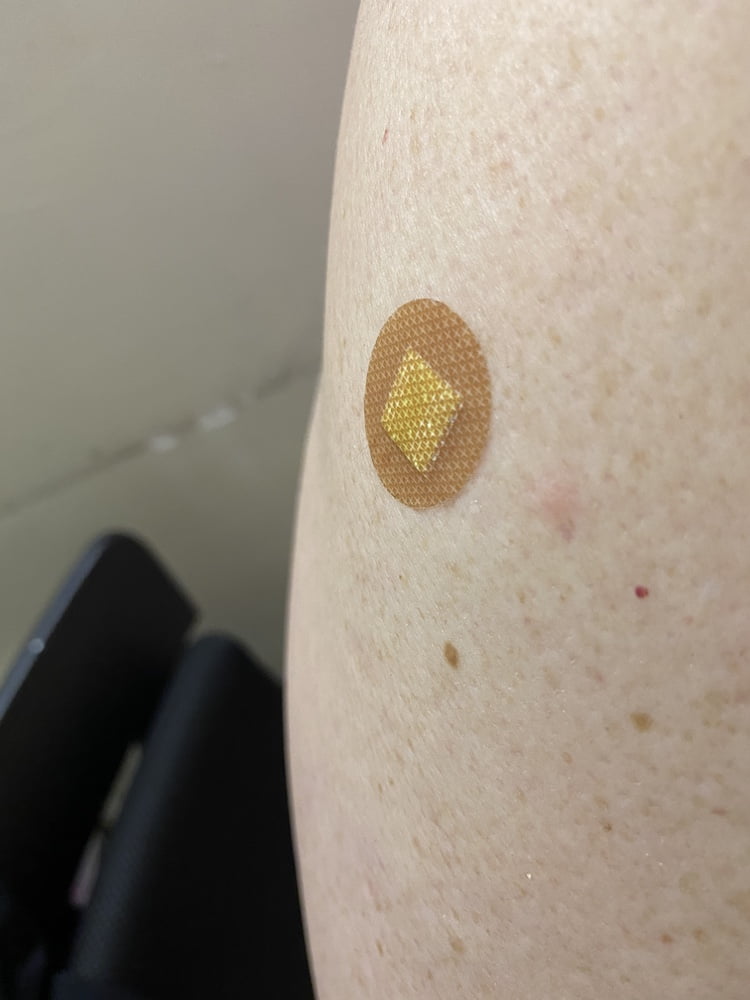An updated list of 31 designated Hong Kong quarantine hotels for the period 22 June – 20 August 2021 (fourth cycle) has been released.
The list of designated hotels in the fourth cycle and related details such as room rates have been uploaded to www.coronavirus.gov.hk/eng/designated-hotel.html
Or download the pdf here
There is an excellent google docs form here about the various hotels including room prices, contact details, restrictions,
Central and Western District
1. Best Western Plus Hotel Hong Kong
2. CM+ Hotels & Serviced Apartments
3. Grand City Hotel
4. JEN Hong Kong by Shangri-La
5. Lan Kwai Fong Hotel @ Kau U Fong
6. One-Eight-One Hotel & Serviced Residences
7. Ramada Hong Kong Harbour View
8. The Landmark Mandarin Oriental
Hong Kong Eastern District
1. Ramada Hong Kong Grand View
Islands District
1. Four Points by Sheraton Hong Kong Tung Chung
2. Regal Airport Hotel
Kowloon City District
1. Bridal Tea House Hotel Hung Hom Gillies Avenue South
2. iclub Ma Tau Wai Hotel
3. Kerry Hotel, Hong Kong
4. Metropark Hotel Kowloon Hong Kong
5. Regal Oriental Hotel
Kwai Tsing District
1. Dorsett Tsuen Wan
Hong Kong Southern District
1. Nina Hotel Island South (Formerly L’hotel Island South)
2. Ovolo Southside
Tsuen Wan District
1. Silka Far East Hotel Hong Kong
Wan Chai District
1. Best Western Hotel Causeway Bay
2. Dorsett Wanchai Hong Kong
3. Hotel Indigo Hong Kong Island
4. Mira Moon Hotel
5. Vela Boutique Hotel
6. Eco Tree Hotel Causeway Bay
Wong Tai Sin District
1. Pentahotel Hong Kong
Kowloon Yau Tsim Mong District
1. Bridal Tea House Hotel Yau Ma Tei Wing Sing Lane
2. Dorsett Mongkok Hong Kong
3. Ramada Hong Kong Grand
4. Silka Seaview Hotel Hong Kong

